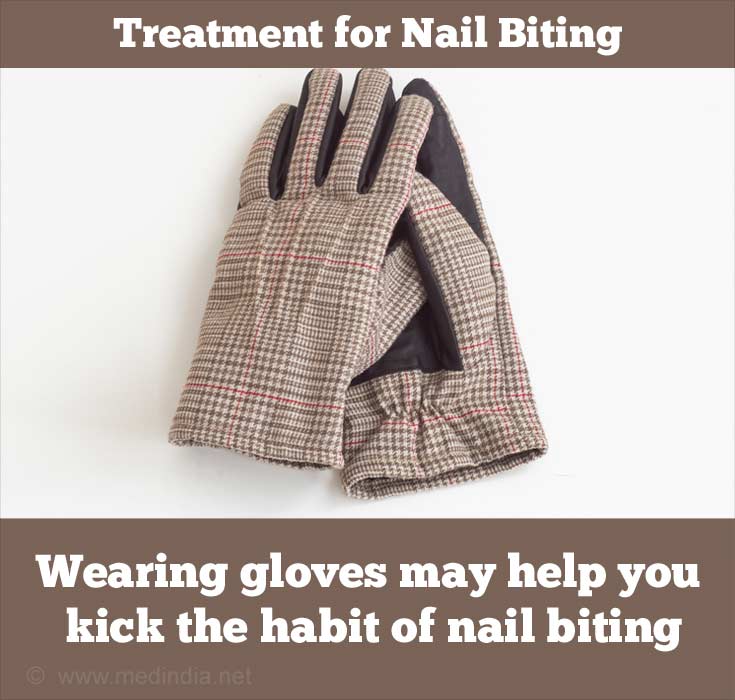How do you Treat Nail Biting?
The treatment of nail biting is a long process since it involves a combination of psychological and physical measures.
In many cases, parents and siblings find it embarrassing to associate with their family member who bites nails. Sometimes, they use punishment as a means to stop the nail biting habit but it has been found that this measure increases the habit and reduces the self-esteem of the individual.
To consider treatment, it helps to evaluate the conditions that stimulate the habit of nail biting. For example, certain conditions in the environment, such as a tense situation or a frightening incident could cause the habit. In college, exam papers or sheer boredom can make students bite their nails. Once this is done, then certain strategies can be implemented based on the age and understanding of the individual.
Creating aversion to nail biting - It is suggested that painting nails with a bitter-tasting nail polish could deter you from biting nails. But, the effectiveness of this strategy is not very clear.
Barrier-type interventions – These methods avoid contact between the nails and mouth and include, mittens, gloves, socks, or bite-plate devices to remind not to bite and serve as barriers to nail biting

Measures to reverse the habit - In this cognitive behavioral therapy strategy (CBT), systematic methods are employed to help you reduce their dependence on nail biting. Initially, stress is laid on being aware of the habit. So, you are encouraged to record all the instances or circumstances that promote their nail biting. Once, that is made routine, an action is introduced to counter the nail biting habit. This means each time the urge arises to bite your nails, the use of the counter action (e.g. not lifting the finger or avoid moving the hand to the face) will distract you from the nail biting habit. For each instance in the case of children, when the nail biting habit is controlled, parents should reward the child by taking him or her to a place that was earlier discouraged due to the nail biting habit. The process of habit reversal is a slow process that requires patience to adhere to. Many times, parents and children or even adults give up midway through the process.
Medications - To date, there are no clear reports of effective medications against the habit of nail biting. Currently, Clomipramine and Fluoxetine have shown efficacy against the behaviour.
Practising self-control - Children are taught the strategies of self-control. They are taught first that the habit is not a favourable one. Then they are asked to identify the situations that make them resort to this habit. To counter the urge, they are taught alternate strategies to employ when the urge arises. Then, they are asked to figure out a way to reward themselves each time they are successful in controlling the habit. It has been observed that learning the habit of self-control actually is effective and also improves self-esteem.
How to Prevent Nail Biting?
Dermatologists suggest certain strategies to avoid nail biting:
Apply nail polish with a bitter taste: Applying bitter tasting nail polish acts as a deterrent to biting nails.
Recognize potential causes:Certain causes, such as stress, nervousness, or feeling bored could create the need to bite nails. If you know that these may provoke the action of biting nails, it is best to find an alternate strategy to prevent the action of nail biting.
Steadily reduce the habit nail by nail: This means you should focus on not biting one nail (e.g. the ring finger nail) with determination. Once you get over the urge to bite that nail, you can turn your focus on another fingernail.
Cut your nails: This is a hygienic habit that will reduce the urge to bite nails.
Find an alternate constructive habit: Replace the nail biting habit with a more constructive habit. When the urge arises to bite nails, you could distract yourself with a habit, such as playing with a musical instrument, a stress-relief object, or chew a gum or sweet. However, the effectiveness of these measures need to be confirmed with more studies.






